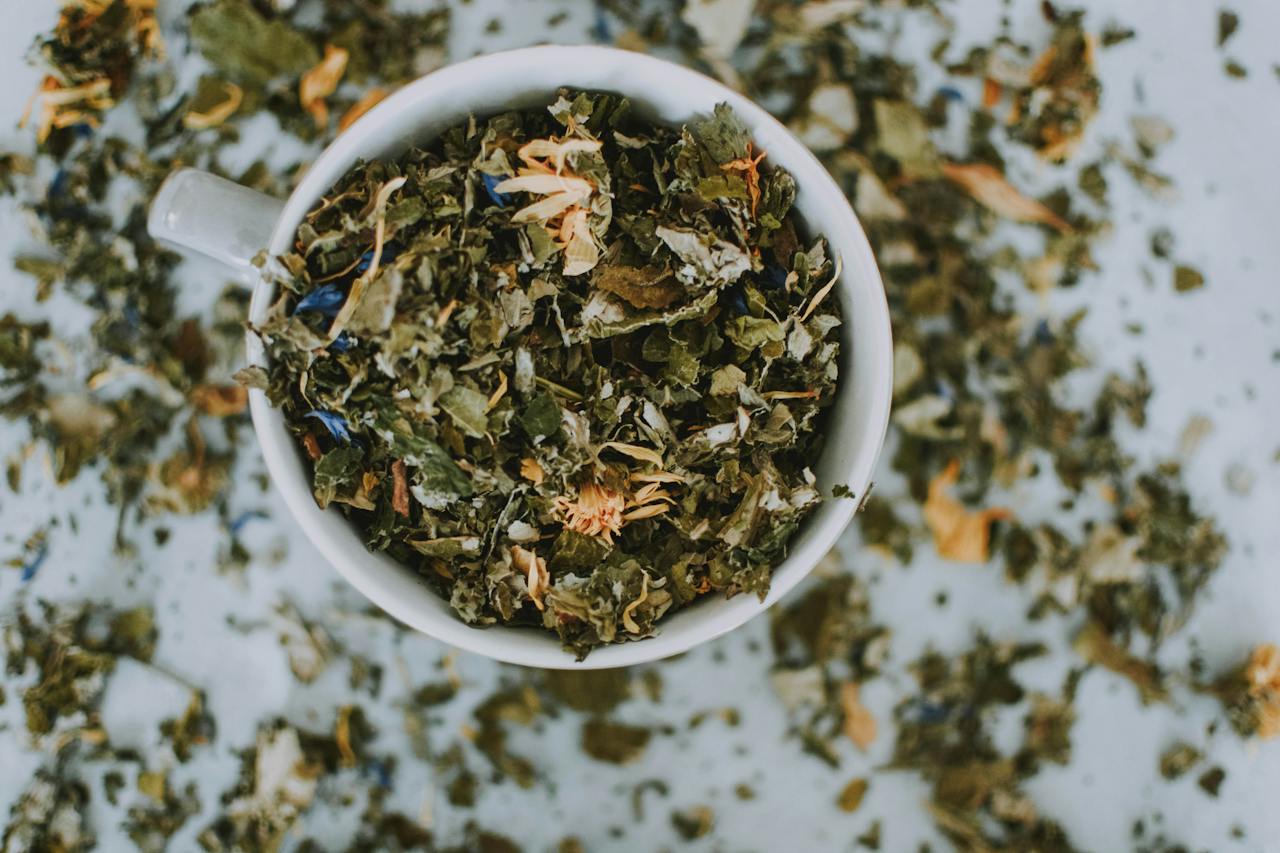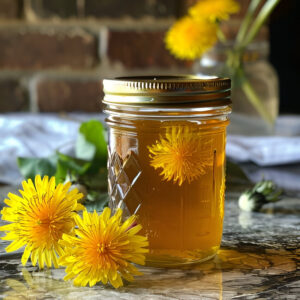Disclaimer: This post may contain affiliate links, meaning we get a small commission if you make a purchase through our links, at no cost to you. For more information, please visit our Disclosure page.
In today’s fast-paced world, getting a good night’s sleep can be a challenge. As we navigate the demands of our daily lives, the importance of quality sleep becomes increasingly apparent. This is where herbal remedies come into play – simple, natural alternatives that have been used for generations to promote better sleep.
Today we’re focusing on solutions – the 5 best herbs recognized for their potential to enhance sleep. From the calming effects of Valerian root to the soothing properties of lavender, each herb has a specific role to play in helping you achieve a more restful night’s sleep. We’ll break down the essential details about these herbs, providing you with a guide to incorporating natural sleep aids into your routine.
1. Valerian Root
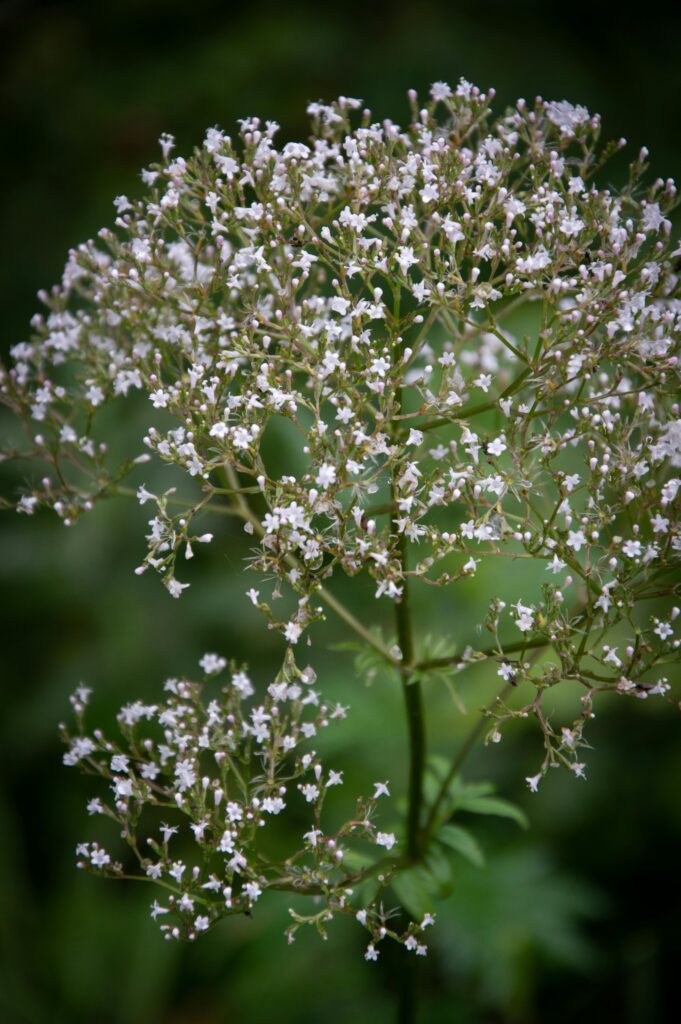
Valerian root emerges as a frontrunner among natural sleep aids. Derived from the Valeriana officinalis plant, this herb has a rich history of use in traditional medicine for its calming properties. Valerian root contains compounds such as valerenic acid that interact with the gamma-aminobutyric acid (GABA) receptors in the brain, leading to a calming effect. GABA is a neurotransmitter that plays a crucial role in regulating anxiety and promoting relaxation.
Research suggests that Valerian root may influence the release of GABA in the brain, contributing to a reduction in neural activity and promoting a sense of calmness. This mechanism aligns with its traditional use as a natural sedative.
Forms of Valerian Root: Valerian root is available in various forms, including capsules, tinctures, and teas. Capsules offer a convenient way to incorporate Valerian into your routine, while teas provide a soothing bedtime ritual.
Considerations and Caution: While Valerian root is generally considered safe for short-term use, it’s crucial to be aware of potential interactions with medications and its effects on certain health conditions. Consulting with a healthcare professional is advisable, especially for those with liver concerns.
Dosage and Timing: Determining the appropriate dosage of Valerian root can vary based on factors such as individual response and the specific form of the supplement. It’s recommended to start with a lower dose and adjust as needed. Taking Valerian root approximately 30 minutes to two hours before bedtime is commonly suggested for optimal results.
2. Chamomile
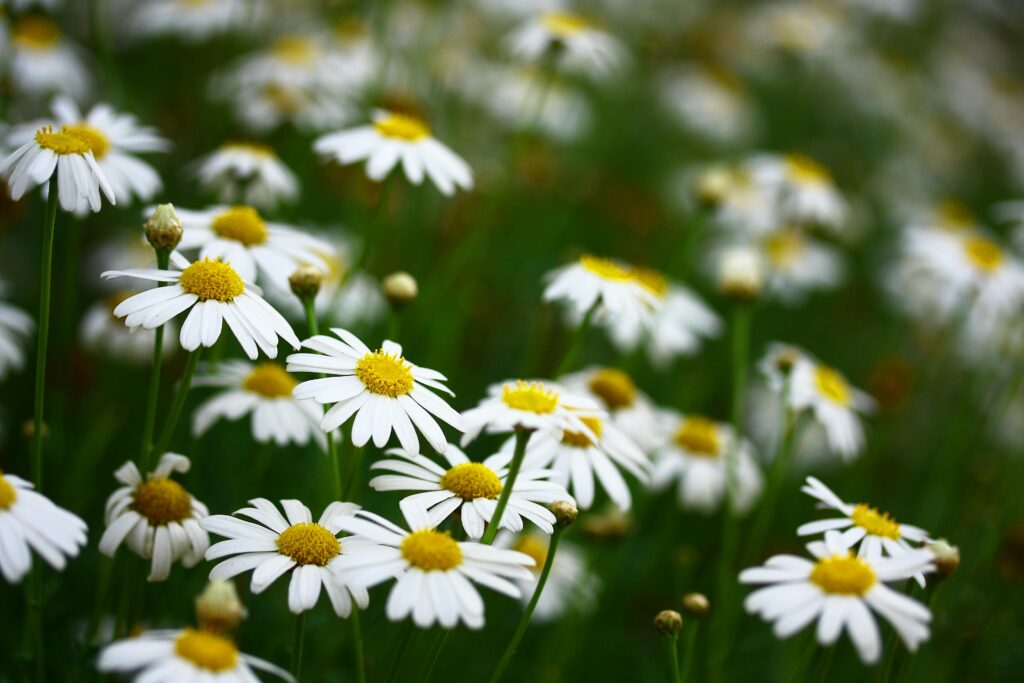
Chamomile is a timeless companion in the pursuit of restful nights. Known for its calming properties, Chamomile has been cherished for centuries for its ability to soothe both the mind and body.
Understanding Chamomile: Chamomile, derived from the Matricaria chamomilla plant, is characterized by its small, daisy-like flowers. The flowers contain essential oils, flavonoids, and other compounds that contribute to Chamomile’s therapeutic effects.
One of Chamomile’s notable features is its gentle aroma, which has been associated with relaxation and stress reduction. The herb interacts with receptors in the brain, potentially influencing neurotransmitters to promote a calming effect.
Chamomile Tea – A Versatile Sleep Aid: Chamomile tea is a popular and accessible form of this herb, offering a convenient way to incorporate its benefits into your nightly routine. The act of sipping warm tea before bedtime also adds a comforting ritual to promote relaxation.
Different Forms of Chamomile Consumption: Apart from tea, Chamomile is available in various forms, including capsules, essential oils, and topical applications. These diverse options provide flexibility in choosing the most suitable way to integrate Chamomile into your sleep routine.
Considerations and Caution: While Chamomile is generally considered safe, individuals with allergies to plants in the Asteraceae family (like ragweed) should exercise caution. As with any herbal remedy, it’s advisable to consult with a healthcare professional, particularly if you are pregnant or nursing.
Dosage and Timing: Chamomile tea is typically consumed about 30 minutes to an hour before bedtime for optimal results. Adjusting the strength and frequency based on individual response is common, and consistency is key to reaping the benefits over time.
3. Lavender
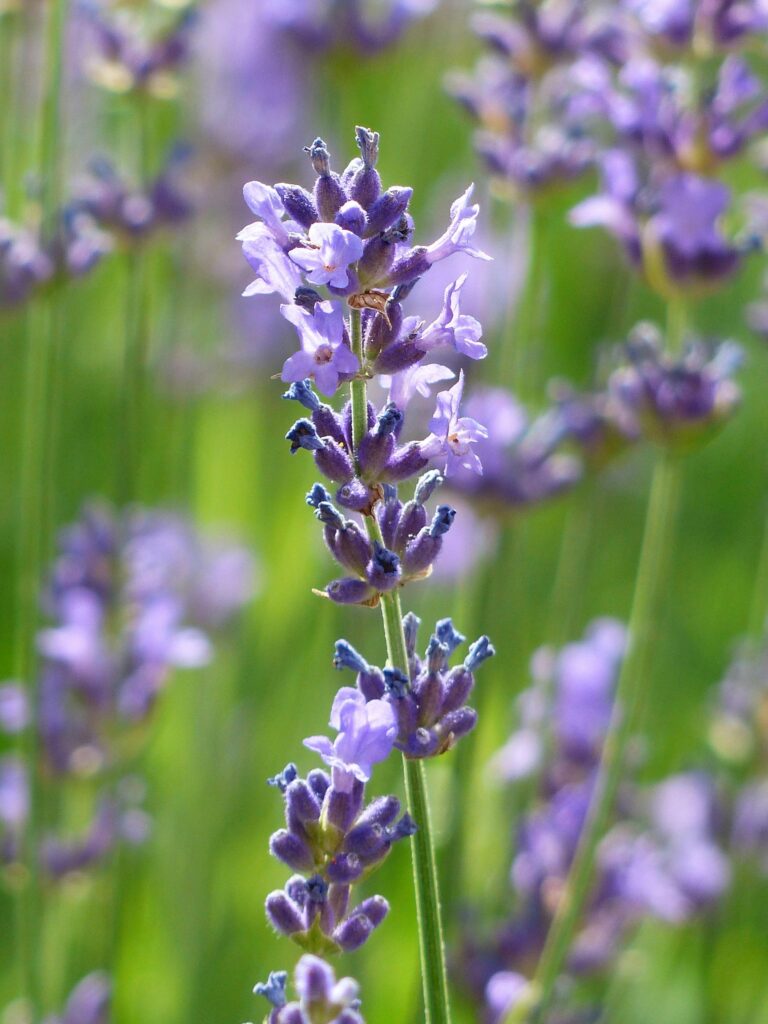
Lavender offers not only a delightful fragrance but also a myriad of therapeutic benefits. This aromatic herb has been celebrated for its calming effects on the nervous system and its ability to create an environment conducive to peaceful sleep.
Understanding Lavender: Lavender, scientifically known as Lavandula angustifolia, is a fragrant herb known for its vibrant purple flowers and distinct scent. Beyond its aesthetic appeal, Lavender’s essential oil is a treasure trove of compounds with potential health benefits.
The aroma of Lavender has long been associated with relaxation and stress reduction. Inhaling Lavender’s scent is believed to impact the limbic system, the part of the brain that influences emotions and mood, leading to a calming effect.
Lavender Essential Oil for Sleep Support: Lavender essential oil is a popular choice for incorporating the herb into sleep routines. Whether diffused in the bedroom, added to a pillow, or used in a bedtime bath, Lavender oil provides a subtle and effective way to promote a serene sleep environment.
Beyond its use as an essential oil, Lavender can be incorporated into bedtime rituals in various forms. Lavender-infused sachets, herbal teas, or even dried Lavender placed near the sleeping area contribute to a relaxing atmosphere.
Considerations and Caution: Lavender is generally considered safe for external use, but allergic reactions are possible. It’s advisable to perform a patch test before using Lavender oil topically. Pregnant or nursing individuals and those with certain medical conditions should seek guidance from a healthcare professional.
Dosage and Application: Using Lavender oil in moderation is key. A few drops in a diffuser, a diluted blend for massage, or a couple of drops on a pillow are common ways to harness Lavender’s benefits without overwhelming the senses.
4. Passionflower
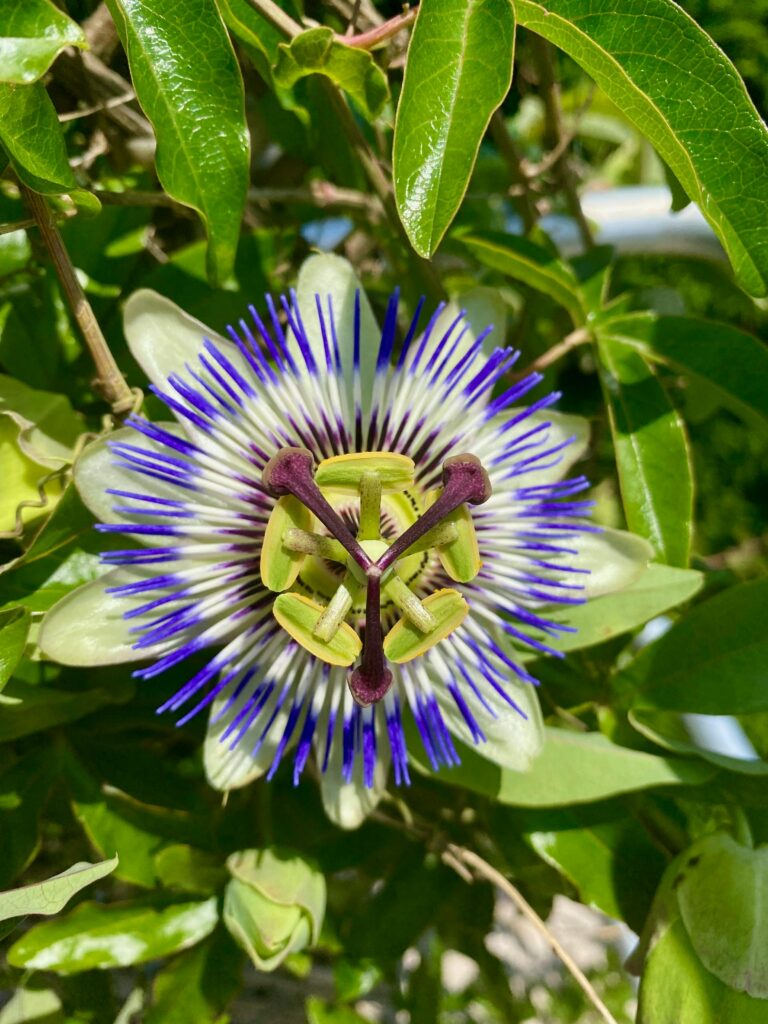
Passionflower takes center stage as a botanical sedative with a long history of use in traditional medicine. Derived from the Passiflora incarnata plant, this herb is celebrated for its potential to induce relaxation and support restful sleep.
Understanding Passionflower: Passionflower is a climbing vine adorned with intricate and vibrant flowers. The parts commonly used for medicinal purposes include the flowers, leaves, and stems. Its name is derived from the symbolic representation of the passion of Christ by early Spanish missionaries.
Passionflower contains compounds such as flavonoids and alkaloids, which are believed to contribute to its calming effects on the nervous system. By increasing levels of (GABA) in the brain, Passionflower induces a sense of tranquility and relaxation.
Forms of Passionflower Consumption: Passionflower is available in various forms, including teas, tinctures, and capsules. Passionflower tea, in particular, is a popular choice for its simplicity and accessibility, providing an easy way to incorporate this herb into bedtime routines.
In some cases, Passionflower is combined with other herbs known for their sleep-promoting properties, creating herbal blends that target different aspects of sleep-related challenges.
Considerations and Caution: While Passionflower is generally considered safe for short-term use, it’s important to exercise caution, especially if combining it with medications that have sedative effects.
Dosage and Timing: The appropriate dosage of Passionflower can vary based on the form of the supplement and individual response. Starting with a lower dose and gradually increasing if needed is a common approach. Taking Passionflower approximately 30 minutes to an hour before bedtime is often recommended.
5. Ashwagandha

As we progress in our list of natural sleep aids, Ashwagandha emerges as a notable herb renowned for its adaptogenic properties. With a rich history in Ayurvedic medicine, this herb has earned a reputation for promoting balance and resilience in the face of stress, making it a valuable tool in the pursuit of a restful night’s sleep.
Understanding Ashwagandha: Ashwagandha, scientifically known as Withania somnifera, is a small shrub native to India and North Africa. Its name, derived from Sanskrit, translates to “smell of the horse,” alluding to its distinct earthy odor and traditional belief in conferring the strength and vitality of a horse.
Ashwagandha is classified as an adaptogen, a category of herbs known for their ability to help the body adapt to stressors. By modulating the stress response, Ashwagandha aids in reducing cortisol levels, promoting a more relaxed state.
Impact on Cortisol Levels: Cortisol, often referred to as the stress hormone, plays a key role in the body’s response to stress. Ashwagandha has been studied for its potential to lower elevated cortisol levels, contributing to a calmer physiological state.
Balancing Neurotransmitters: Ashwagandha influences neurotransmitters such as GABA in the brain, which are associated with relaxation and reduced neural excitability. This dual impact on cortisol levels and neurotransmitters makes Ashwagandha a holistic option for sleep support.
Forms of Ashwagandha Consumption: Ashwagandha is available in various forms, including capsules, powders, and tinctures. The choice of form depends on individual preferences and ease of incorporation into daily routines.
Considerations and Caution: While generally well-tolerated, it’s advisable to consult with a healthcare professional before introducing Ashwagandha, especially for those with underlying health conditions or those taking medications.
Dosage and Timing: Determining the appropriate dosage of Ashwagandha should consider factors such as individual response and the specific form of the supplement. Consistency in use is key, and taking Ashwagandha at consistent times may contribute to its effectiveness.
Conclusion: Embracing Natural Sleep Solutions
We have uncovered an array of herbs, each contributing its unique qualities to the goal of achieving restful and rejuvenating sleep. From the sedative powers of Valerian root to the gentle relaxation of Chamomile, the aromatics of Lavender, the natural sedative qualities of Passionflower, and the adaptogenic features of Ashwagandha, these herbs form a botanical toolkit for those seeking a holistic approach to sleep.
It is essential to recognize that individual responses to these herbs can vary, and the effectiveness of natural sleep aids may depend on factors such as lifestyle, overall health, and the specific sleep challenges faced by each individual. Before incorporating these herbs into your routine, consulting with a healthcare professional is advisable, especially if you have underlying health conditions or are taking medications.
These herbs provide an alternative to conventional sleep aids, offering the potential for improved sleep quality without the side effects associated with pharmaceutical options. Whether through a cup of herbal tea, the scent of essential oils, or the consistent use of herbal supplements, may these natural sleep solutions contribute to a night of deep and restorative sleep.

